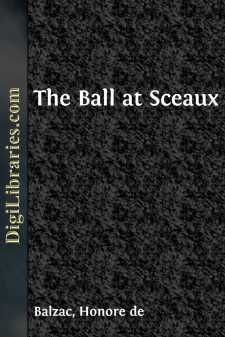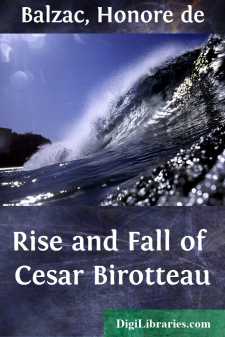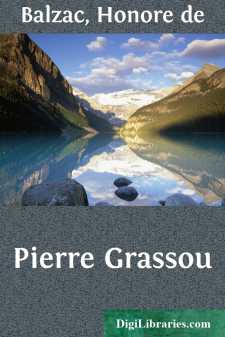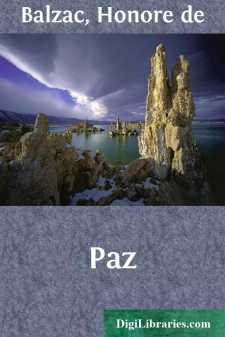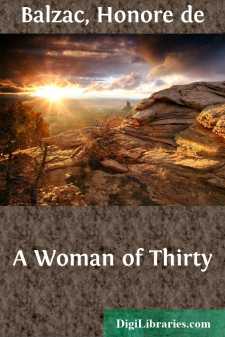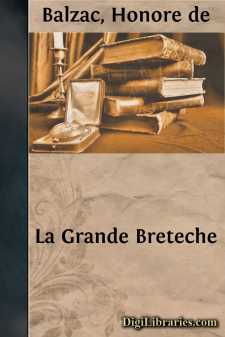Categories
- Antiques & Collectibles 13
- Architecture 36
- Art 48
- Bibles 22
- Biography & Autobiography 813
- Body, Mind & Spirit 142
- Business & Economics 28
- Children's Books 17
- Children's Fiction 14
- Computers 4
- Cooking 94
- Crafts & Hobbies 4
- Drama 346
- Education 46
- Family & Relationships 57
- Fiction 11829
- Games 19
- Gardening 17
- Health & Fitness 34
- History 1377
- House & Home 1
- Humor 147
- Juvenile Fiction 1873
- Juvenile Nonfiction 202
- Language Arts & Disciplines 88
- Law 16
- Literary Collections 686
- Literary Criticism 179
- Mathematics 13
- Medical 41
- Music 40
- Nature 179
- Non-Classifiable 1768
- Performing Arts 7
- Periodicals 1453
- Philosophy 64
- Photography 2
- Poetry 896
- Political Science 203
- Psychology 42
- Reference 154
- Religion 513
- Science 126
- Self-Help 84
- Social Science 81
- Sports & Recreation 34
- Study Aids 3
- Technology & Engineering 59
- Transportation 23
- Travel 463
- True Crime 29
Sort by:
by:
Honore de Balzac
THE BALL AT SCEAUX The Comte de Fontaine, head of one of the oldest families in Poitou, had served the Bourbon cause with intelligence and bravery during the war in La Vendee against the Republic. After having escaped all the dangers which threatened the royalist leaders during this stormy period of modern history, he was wont to say in jest, "I am one of the men who gave themselves to be killed on...
more...
by:
Honore de Balzac
UNCONSCIOUS COMEDIANS Leon de Lora, our celebrated landscape painter, belongs to one of the noblest families of the Roussillon (Spanish originally) which, although distinguished for the antiquity of its race, has been doomed for a century to the proverbial poverty of hidalgos. Coming, light-footed, to Paris from the department of the Eastern Pyrenees, with the sum of eleven francs in his pocket for all...
more...
by:
Honore de Balzac
During winter nights noise never ceases in the Rue Saint-Honore except for a short interval. Kitchen-gardeners carrying their produce to market continue the stir of carriages returning from theatres and balls. Near the middle of this sustained pause in the grand symphony of Parisian uproar, which occurs about one o'clock in the morning, the wife of Monsieur Cesar Birotteau, a perfumer established...
more...
by:
Honore de Balzac
PIERRE GRASSOU Whenever you have gone to take a serious look at the exhibition of works of sculpture and painting, such as it has been since the revolution of 1830, have you not been seized by a sense of uneasiness, weariness, sadness, at the sight of those long and over-crowded galleries? Since 1830, the true Salon no longer exists. The Louvre has again been taken by assault,—this time by a populace...
more...
by:
Honore de Balzac
I In September, 1835, one of the richest heiresses of the faubourg Saint-Germain, Mademoiselle du Rouvre, the only daughter of the Marquis du Rouvre, married Comte Adam Mitgislas Laginski, a young Polish exile. We ask permission to write these Polish names as they are pronounced, to spare our readers the aspect of the fortifications of consonants by which the Slave language protects its...
more...
by:
Honore de Balzac
I. EARLY MISTAKES It was a Sunday morning in the beginning of April 1813, a morning which gave promise of one of those bright days when Parisians, for the first time in the year, behold dry pavements underfoot and a cloudless sky overhead. It was not yet noon when a luxurious cabriolet, drawn by two spirited horses, turned out of the Rue de Castiglione into the Rue de Rivoli, and drew up behind a row...
more...
by:
Honore de Balzac
LA GRANDE BRETECHE "Ah! madame," replied the doctor, "I have some appalling stories in my collection. But each one has its proper hour in a conversation—you know the pretty jest recorded by Chamfort, and said to the Duc de Fronsac: 'Between your sally and the present moment lie ten bottles of champagne.'" "But it is two in the morning, and the story of Rosina has...
more...
by:
Honore de Balzac
CHAPTER I. EXPOSITION Notwithstanding the discipline which Marechal Suchet had introduced into his army corps, he was unable to prevent a short period of trouble and disorder at the taking of Tarragona. According to certain fair-minded military men, this intoxication of victory bore a striking resemblance to pillage, though the marechal promptly suppressed it. Order being re-established, each regiment...
more...


